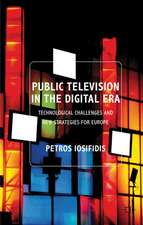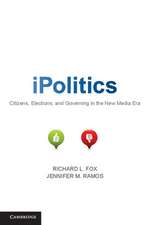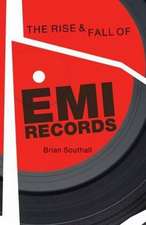Understanding Complexity
Editat de Gillian Ragsdell, Jennifer Wilbyen Limba Engleză Paperback – 26 oct 2012
| Toate formatele și edițiile | Preț | Express |
|---|---|---|
| Paperback (1) | 948.92 lei 6-8 săpt. | |
| Springer Us – 26 oct 2012 | 948.92 lei 6-8 săpt. | |
| Hardback (1) | 956.69 lei 6-8 săpt. | |
| Springer Us – 31 aug 2001 | 956.69 lei 6-8 săpt. |
Preț: 948.92 lei
Preț vechi: 1157.22 lei
-18% Nou
Puncte Express: 1423
Preț estimativ în valută:
181.66€ • 189.55$ • 152.28£
181.66€ • 189.55$ • 152.28£
Carte tipărită la comandă
Livrare economică 12-26 martie
Preluare comenzi: 021 569.72.76
Specificații
ISBN-13: 9781461354925
ISBN-10: 1461354927
Pagini: 312
Ilustrații: XV, 292 p.
Dimensiuni: 178 x 254 x 16 mm
Greutate: 0.54 kg
Ediția:Softcover reprint of the original 1st ed. 2001
Editura: Springer Us
Colecția Springer
Locul publicării:New York, NY, United States
ISBN-10: 1461354927
Pagini: 312
Ilustrații: XV, 292 p.
Dimensiuni: 178 x 254 x 16 mm
Greutate: 0.54 kg
Ediția:Softcover reprint of the original 1st ed. 2001
Editura: Springer Us
Colecția Springer
Locul publicării:New York, NY, United States
Public țintă
ResearchCuprins
Section One - Theories for Complex Systems.- The Systemic View of the World: The ? Logo of General Systems Research.- Systems Science Fundamental Principles.- A Cosmological Imperative: Emergence of Information, Complexity and Life.- The Co-Creation Hypothesis.- What is Infodynamics?.- Section Two - Emerging Foci on Systems Research and Practice.- The History on Sociocybernetics, RC51, of the International Sociological Association.- Systems Practice at the United Kingdom’s Open University.- The WOSC and some Views about Cybernetics.- Presentation of Wiener Gold Medal to Dr. Candace Pert.- Section Three - Human Systems in the 21st Century.- On Misdirected Systems.- The Complexity of Performance and the Instruments of Mastery.- Understanding Imperfection.- Engaging with Transient Complexity in Development Projects.- Meaning Networks and Verbal Communication: A Semiotic Perspective of Human Discourse.- Can Religion be Reconciled with Science?.- Section Four - The Challenge of Sustainability.- The Bridge to Humanity’s Future.- Energy, Hierarchy and Money.- Capitalism in the New Millennium: The Challenge of Sustainability.- Section Five - The Art and Science of Forecasting in the Age of Global Warming.- Technological Forecasting and Assessment Tools: The Changing Scene.- Forecasting the Innovation of Complex Technologies.- Making Technology Foresight (and Systems Studies?) Useful.- Section Six - Y2K.- Why the Century Date Change Occurred So Smoothly.- Implications for the Security of the International Information Infrastructure.- Y2K - “Ten Months After”: Two “Double Binds” and a “Double Blindness”.- Section Seven - The Future of Systems Science.- The Future of the Natural Systems Sciences.- Systems Thinking and the Social Sciences.- Systems Thinking forthe 21st Century.- OR 2000: Challenges and Prescriptions for the New Millennium.- Section Eight - ISSS Presidential Addresses.- The Systems Movement and ISSS in the New Millennium.- The Systems Sciences in the Year 3000.- Continuing the Traditions of ISSS - Systems Science in the Service of Humanity.
Recenzii
From the reviews:
"This book is a condensation of the plenary sessions at the World Congress of the Systems Sciences … . The most intriguing feature, however, is that practically all the contributions transcend the narrow disciplinary outlook. As they all have a common framework, it is easy for the reader to connect them. Thereby, new links can be established, and that is surely what innovation is all about. This unique feature makes Understanding Complexity a potentially rich and … invaluable resource for the future of science." (Markus Schwaninger, System Dynamics Review, Vol. 21 (3), 2005)
"This book is a condensation of the plenary sessions at the World Congress of the Systems Sciences … . The most intriguing feature, however, is that practically all the contributions transcend the narrow disciplinary outlook. As they all have a common framework, it is easy for the reader to connect them. Thereby, new links can be established, and that is surely what innovation is all about. This unique feature makes Understanding Complexity a potentially rich and … invaluable resource for the future of science." (Markus Schwaninger, System Dynamics Review, Vol. 21 (3), 2005)









